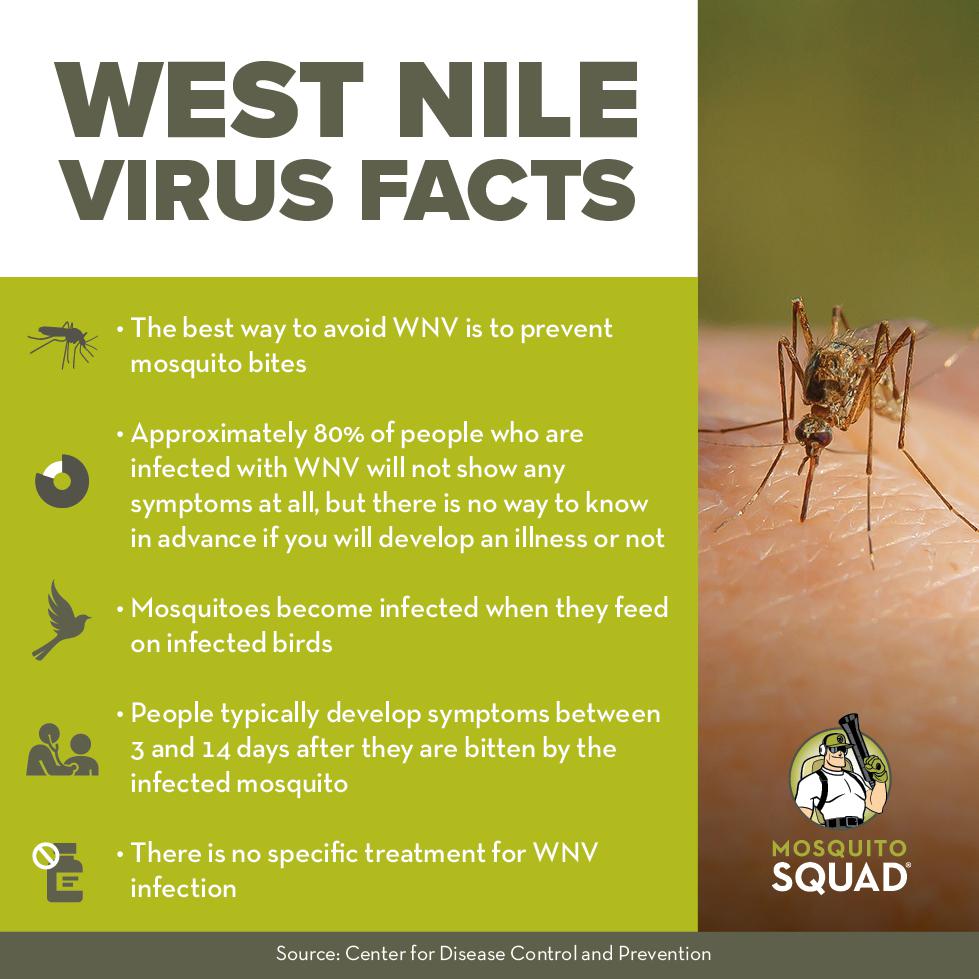Understanding West Nile Virus in Maryland: A Comprehensive Guide
Posted by Mosquito Squad
December 20, 2023
During the past week, information has been released that mosquitoes in Maryland have tested positive for the West Nile Virus (WNV). As a local mosquito control service provider, we believe understanding the risks associated with this mosquito-borne disease is crucial for residents. In this blog, we will delve into the details of the West Nile virus, its impact on Maryland, preventive measures, and ways to stay safe.
What is West Nile Virus? West Nile virus is a potentially severe illness transmitted to humans through the bite of infected mosquitoes, primarily from the Culex species. The virus originated in Uganda in 1937 and has since spread to various parts of the world, including the United States.
West Nile Virus in Maryland: Maryland has witnessed cases of West Nile virus over the years, although the number of cases varies from year to year. The highest number of cases in the state typically occurs during late summer and early fall when mosquito activity is at its peak. This year’s initial report of WNV in Maryland comes from testing mosquito traps set by the Maryland Department of Agriculture.
Symptoms and Risk Factors: Most people infected with West Nile virus will not develop any symptoms. However, about 20% of those infected may experience mild flu-like symptoms such as fever, headache, body aches, fatigue, and swollen lymph nodes. In rare cases, severe symptoms like meningitis, encephalitis, or paralysis may occur, posing a significant health risk, particularly for older adults and individuals with weakened immune systems.
Prevention Measures:
a) Mosquito Control: Eliminate standing water around your home, as mosquitoes breed in stagnant water. Regularly empty flower pots, bird baths, and other containers that collect water. Keep gutters clean and ensure proper drainage.
b) Protective Clothing: When outdoors, especially during peak mosquito activity times (dusk and dawn), wear long sleeves, pants, and socks to minimize exposed skin.
c) Insect Repellents: Use EPA-registered insect repellents containing DEET, picaridin, IR3535, or lemon eucalyptus (OLE) oil on exposed skin to repel mosquitoes effectively.
d) Screen Doors and Windows: Keep doors and windows screened to prevent mosquitoes from entering your home.
Reporting and Testing: If you suspect you have been infected with West Nile virus or notice dead birds, especially crows or blue jays, report them to your local health department. Health officials may collect and test the birds for the virus, aiding in early detection and prevention efforts.
Public Health Efforts: Maryland's health authorities actively monitor mosquito populations and conduct targeted control measures to reduce mosquito breeding grounds. They also educate the public about the virus, its symptoms, and preventive measures through campaigns and outreach programs.
While West Nile virus poses a risk in Maryland, being aware and taking appropriate precautions can significantly reduce the chances of infection. By practicing mosquito control measures, wearing protective clothing, using insect repellents, and reporting suspicious cases or dead birds, we can work together to mitigate the spread of the West Nile virus in our communities. Stay informed, stay safe, and enjoy all that Maryland offers while minimizing the risks associated with mosquito-borne diseases.

